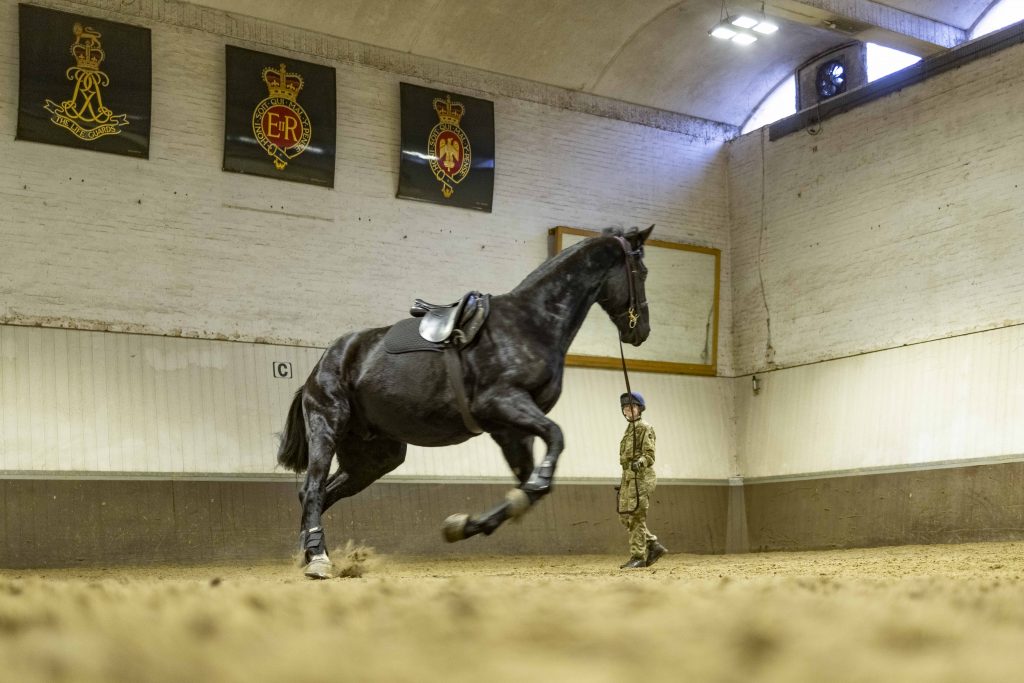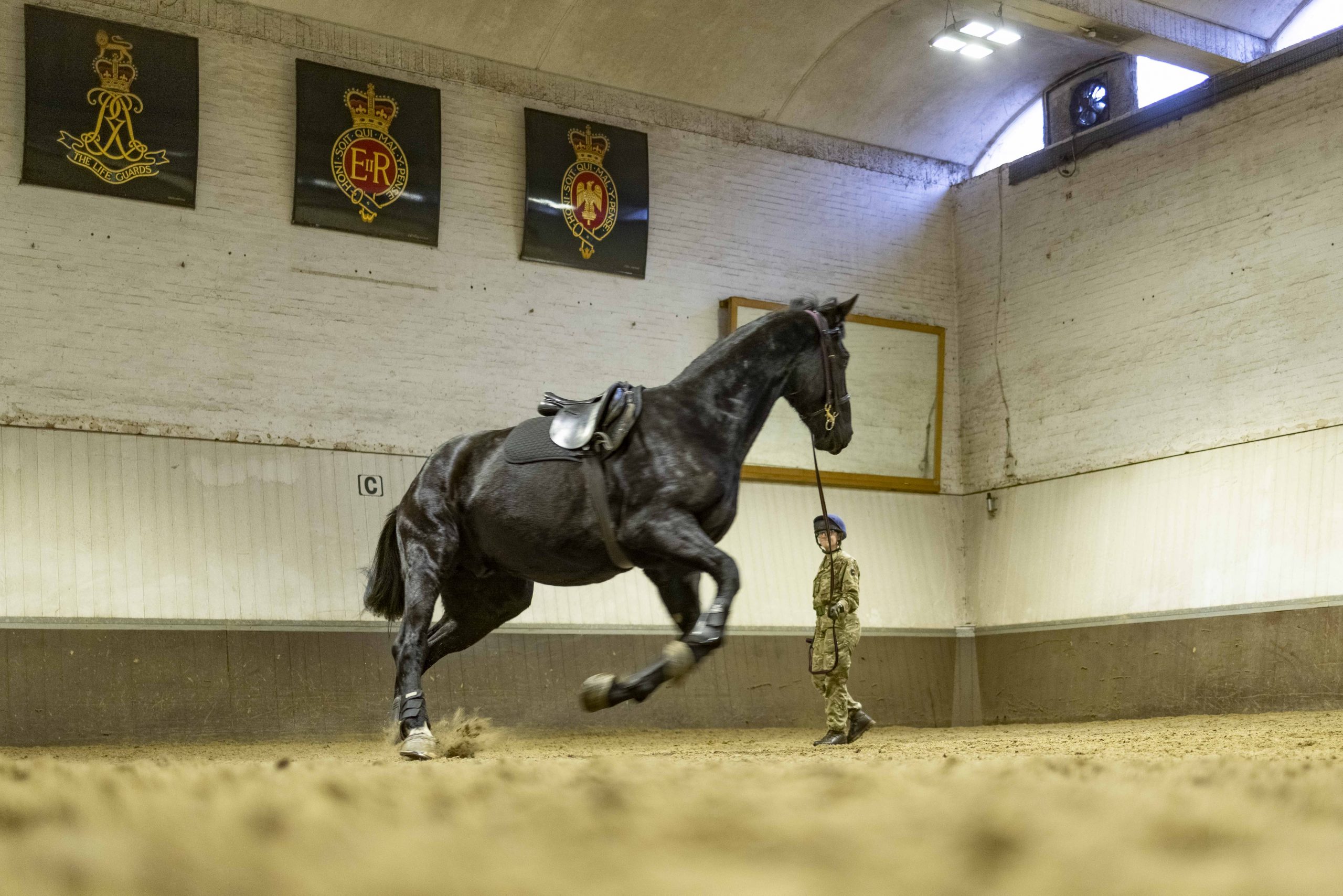Since the beginning of December 2022, The British Army’s military working horses have enjoyed a fantastically relaxing break from duties, running semi-wild in the fields around the Defence Animal Training Regiment in Melton Mowbray. But now the time has come to return to work in London. Horses love to roll in mud and get thoroughly filthy and these once fine ceremonial beasts are no exception. Horses that once gleamed and glowed on parade are now unrecognisable. Their hooves and coats are rough, their manes and tails have grown long and matted. The Gunners of the King’s Troop Royal Horse Artillery and the Troopers of the Household Cavalry Mounted Regiment now find themselves faced with the monumental task of gently bringing these equine mud monsters back up to standard, a standard fit for the King.

From early dawn, horse boxes began arriving at the Defence Animal Training Regiment in Leicestershire. The horses were rounded up, given a thorough health inspection, their microchips and hoof numbers checked against the military roll, before they were loaded onto the wagons and transported back to the capital.
Back in their stables in Knightsbridge and Woolwich, the horses will undergo a seven-week reconditioning programme. This involves coat, mane and tail maintenance, clipping and caring for their hooves, re-fitting bespoke horse shoes and tack, and providing all the horses with an individual dietary and professional fitness programme to bring them back into work.
Lance Corporal of Horse Owen Watkins from The Household Cavalry Mounted Regiment is the Equitation Officer overseeing the move and rehabilitation process for The Blues and Royals in Hyde Park Barracks, Knightsbridge. He said; “It was important that the horses were given an opportunity to rest and recuperate in the countryside. Moving large numbers of horses out of the city to run free over the festive period also allowed the majority of the Regiment to take some holiday. It gave us all the chance to re-charge our batteries after what had been an incredibly busy and unprecedented year.”
The next few weeks will be intense, with long days for the soldiers, especially the Army Farriers working in the forge who are faced with shoeing hundreds of slightly feral, work-shy, returning horses.
Once the horses have their hooves trimmed and new shoes fitted, it’s time to start the painstaking process of removing layers of mud from shaggy coats.
Clipping only removes the long hair from mud drenched animals. Horses have very sensitive skin and the mud will be deeply ingrained. The only way to remove it without causing irritation is with a gradual repeat process of gentle grooming and washing, day after day.
It’s demanding work, but pays dividends because the close contact over many hours helps to rebuild the bonds between horses and soldiers essential for delivering the complex ceremonial parades to come.
The horses are given regular medical checks from the onsite Army Vet and an individual diet plan is created for each horse.
Finally, after a period of build-up exercises to tone their muscles, they are reintroduced to the formal military moves and regalia required for mounted ceremonial duties.
It takes patience, time and care to get these incredible animals back to the exceptional standards required for state ceremonial and public duties.
Our military working horses have an important role helping to deliver the UK’s soft power and influence globally. As well as The King’s Troop Royal Horse Artillery firing Royal Salutes for important state occasions and anniversaries, and The Household Cavalry Mounted Regiment mounting the daily King’s Life Guard at Horse Guards in Whitehall, both Regiments will be training to take part in the first King’s Birthday Parade when the Welsh Guards will Troop Their Colour on Horse Guards Parade in June. The event will be broadcast live across the world and is the highlight of the ceremonial season.
Horses and riders will be subjected to rigorous inspections by the arbiter of excellence, the Major General of the Household Division, before they are deemed fit to represent the nation on the world’s stage.
It’s a significant goal to aim for, the clock is already ticking, but every soldier will be doing their best to ensure their mounts make the grade.

